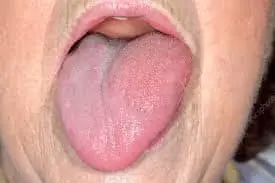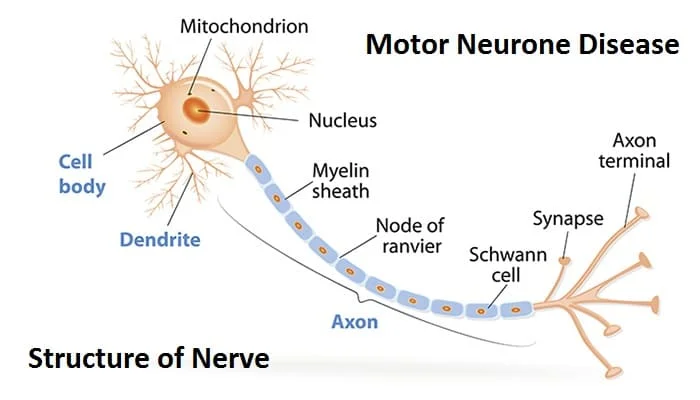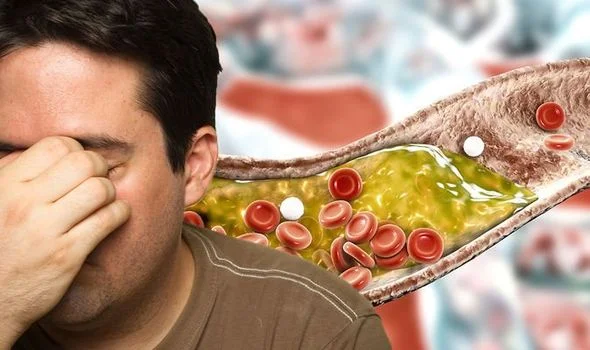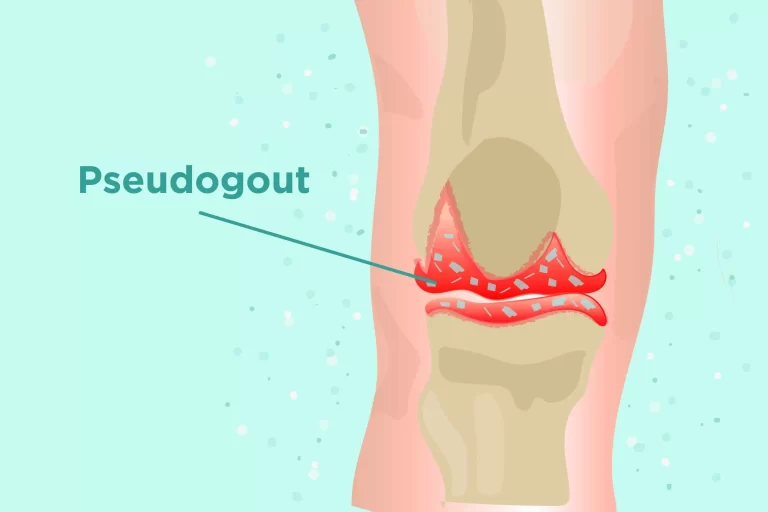Tongue Swelling
What is a Tongue Swelling?
Tongue swelling, medically referred to as “glossitis,” is a condition characterized by the enlargement or inflammation of the tongue.
The swelling can be a result of various underlying causes, ranging from allergic reactions and infections to more serious medical conditions.
Introduction
Inflammation of the tongue is characterized by swelling and potential discoloration of the tongue. This may give the impression that the tongue is smooth. It frequently happens in conjunction with other medical issues.
The tongue is an essential and multipurpose muscle that facilitates food digestion and clear speech. Although you might not give it much thought, several illnesses can impact the tongue. One of these is inflammation of the tongue.
Causes of Tongue Swelling
Allergic Reactions
The most frequent reasons for a swollen tongue are food allergies and chemical allergies. It’s possible that your allergic reaction is just mild and may go away on its own. Anaphylaxis-related swelling, however, is dangerous and may even be death.
Some people either develop allergies as children or are born with them. On the other hand, allergies can also appear later in life.
Is the Swollen Tongue in Your Child an Allergy Symptom?
An allergic reaction’s symptoms typically appear minutes or hours after coming into touch with the allergen. Peanuts, tree nuts, milk, eggs, sesame seeds, soy, wheat, fish, and shellfish are among the common foods to which people are allergic.
Allergy reactions to non-food items are also possible.
Dentists frequently treat patients, for instance, who have experienced adverse reactions to chemical additions, flavorings, and dyes found in toothpaste, mouthwash, denture cleansers, and other oral hygiene products.
Medication
The medical term for swelling beneath the skin is angioedema. It usually refers to allergic-induced swelling.
Medication responses are the most frequent cause of angioedema of the face, lips, or tongue, after food allergies.
The overproduction of bradykinin, an immune system molecule that dilates blood vessels, causes the reaction. Numerous over-the-counter (OTC) and prescription drugs have the potential to cause non-allergic tongue swelling. Swelling of the tongue is not always an adverse effect of medicine.
Here are a few examples:
- Angiotensin-converting enzyme (ACE) inhibitors: The most common cause of tongue edema is ACE inhibitors. Blood pressure is lowered by these medications. ACE inhibitors are the cause of between 20% and 40% of ER visits for drug-related angioedema.
- Antidepressants
- Pain relievers (e.g., nonsteroidal anti-inflammatory drugs)
- Drugs that are used to treat high cholesterol
Skin Conditions
Skin conditions can irritate the tongue, which could result in slight swelling. For instance, the tissue around the tongue may enlarge as a result of mouth ulcers and tooth erosion.
The following are a few examples of skin conditions that could cause tongue swelling:
- Pemphigus: These are autoimmune disorders that have the potential to be fatal. Skin blisters and mouth sores are caused by the immune system attacking the skin and mucous membranes in pemphigus patients.
- Oral lichen planus: This poorly known illness results in oral or cutaneous rashes.
- Oral psoriasis: Fissured tongue (deep grooves form on the surface of the tongue) and geographic tongue (hair-like extensions on the tongue get stripped away) can both be caused by this autoimmune disorder.
Trauma
Temporary swelling can result after biting, piercing, or burning your tongue on hot foods or drinks. It should recover in approximately five days. See your healthcare practitioner if it doesn’t.
Ludwig’s angina is a bacterial infection that can result from serious injuries and oral piercings and produces swelling under the tongue.
Your airway may become closed due to swelling if the illness is not treated right away.
Infection
Many infections, including STIs (sexually transmitted infections) that are spread by oral intercourse, can infect the mouth.
The human papillomavirus (HPV), gonorrhea, and syphilis can all lead to ulcers, inflammation, warts, and swelling of the tongue and surrounding tissue.
Gastroesophageal Reflux Disease
The digestive condition known as gastroesophageal reflux disease (GERD) is characterized by the reflux of stomach acid into the esophagus. Chronic inflammation of the back of the throat may result from it.
Some individuals with GERD may also have swelling at the base of their tongue.
Sjögren’s Syndrome
Dry mouth and eyes are symptoms of the autoimmune illness Sjögren’s syndrome additionally, the condition may result in swelling of the lacrimal glands, which produce tears, and the salivary glands, which produce spit.
The tongue of some Sjögren’s disease patients appears or feels enlarged.
Melkersson-Rosenthal Syndrome
A rare central nervous system condition is called Melkersson-Rosenthal syndrome. It primarily affects the facial muscles. The most typical sign is paralysis of the face. Some individuals with the illness also experience persistent facial swelling, which can involve the tongue and lips.
Cancer
Tongue cancer is an uncommon cause of a tongue that looks or feels enlarged. This pain is typically caused by a tumor or malignant development on the tongue.
You may also lump in your mouth or throat, depending on the location of the tumor. It may hurt in your throat, tongue, and mouth.
Sometimes the pain is so severe that the sufferer finds it difficult to swallow, chew, or talk.
Cancer-related tongue swelling may worsen over time and might not go away on its own.
Symptoms
Your tongue may enlarge on one or both sides, depending on what’s causing it. It may also hurt or itch your tongue.
Speaking and eating may be difficult due to the swelling and other symptoms.
You may get an odd taste in your tongue if the swelling affects your taste buds.
There are some severe symptoms, such as:
- Swelling that keeps getting worse: Swelling may cause airway obstruction. Seek immediate medical treatment if you are having trouble breathing.
- Rapid, severe swelling: An acute allergic reaction may be the cause of sudden swelling in your face and tongue (anaphylaxis).
If this occurs, you may experience additional symptoms such as cyanosis (bluish staining of lips), hives, dyspnea, nausea, and vomiting. Seek immediate medical attention as soon as possible if you suspect you are experiencing an anaphylactic response.
Risk factors
Common factors:
- Allergic reactions: Allergies to foods (nuts, shellfish), drugs (penicillin, antibiotics), dental goods (mouthwash, toothpaste), or even latex are common causes of this.
- Infections: Inflammation and swelling can result from bacterial, fungal, or viral diseases in the mouth, such as the fungal oral thrush or the viral cold sores.
- Irritants: Tobacco usage, alcohol, spicy meals, and hot drinks can all irritate the tongue and cause swelling.
- Vitamin deficiencies: Iron, folate, and vitamin B12 deficiency can all aggravate glossitis.
- Mouth injury: Localized swelling can result from burns, dental treatments, or tongue biting.
- Dry mouth: Inflammation of the tongue can result from decreased saliva production caused by conditions such as Sjögren’s disease or certain drugs.
Less common factors:
- Underlying medical conditions: Tongue swelling can be a symptom of several chronic conditions, including amyloidosis, acromegaly, and autoimmune diseases including Sjogren’s.
- Hormonal changes: For certain people, menstruation or pregnancy might be the cause of glossitis.
- Tumors: Tumors in the mouth or base of the tongue that are malignant or benign can occasionally cause swelling.
Additional factors to consider:
- Age: Glossitis may be more common in children and older persons because of weakened immune systems or underlying medical disorders.
- Oral hygiene: Infections and inflammation can become more likely when poor oral hygiene habits are followed.
- Genetics: A family history of glossitis or associated disorders may exist for some individuals.
Differential Diagnosis
- Allergic Reaction: An allergic reaction to food, medicine, insect bites, or other allergens may cause tongue swelling.
- Angioedema is the name for this ailment, which usually manifests quickly and may cause other symptoms including hives, itching, or trouble breathing.
- Infection: Tongue swelling can result from many infections, including bacterial infections like streptococcal infections or Ludwig’s angina, fungal infections like oral candidiasis (thrush), and viral infections like herpes simplex virus (HSV) or coxsackievirus.
- Inflammatory Conditions: Tongue swelling and discomfort can be brought on by inflammatory conditions such as oral lichen planus or glossitis (tongue inflammation). Tongue swelling and inflammation can also be symptoms of autoimmune diseases like Behçet’s disease or systemic lupus erythematosus (SLE).
- Trauma: Localized swelling and discomfort can be brought on by injuries to the tongue, such as unintentional biting, burns from hot meals or drinks, or damage from dental treatments.
- Angioedema: Non-allergic angioedema can be caused by several things outside allergic reactions, such as drugs (ACE inhibitors, for example), inherited angioedema, or idiopathic causes.
- Tumors: The tongue can enlarge and change in appearance due to benign or malignant growths, such as oral
- cancer or benign tumors like hemangiomas or papillomas.
- Salivary Gland Disorders: Swelling of the tongue or surrounding tissues can be caused by conditions that affect the
- salivary glands, such as sialadenitis (inflammation of the salivary glands) or salivary gland stones (sialolithiasis).
- Systemic Diseases: Tongue swelling can appear as a symptom of generalized edema in certain systemic conditions, such as thyroid problems (e.g., hypothyroidism), congestive heart failure, or renal failure.
- Drug Reactions: Angiotensin-converting enzyme (ACE) inhibitors, nonsteroidal anti-inflammatory medicines (NSAIDs), and antiepileptic medications are among the treatments that can have this side effect.
- Anaphylaxis: In extreme situations, tongue swelling may indicate anaphylaxis, a potentially fatal allergic reaction marked by extensive edema, dyspnea, and a sharp decrease in blood pressure.
- Hereditary Disorders: Tongue swelling can be a recurrent symptom of rare inherited illnesses such as Melkersson-Rosenthal syndrome or hereditary angioedema.
Diagnosis
Seek emergency care instead of waiting to see your doctor if your tongue swelling gets worse or if you have other serious symptoms (such as difficulty breathing).
You can schedule an appointment by calling your physician if your tongue swelling is minor and you are not experiencing any additional symptoms.
Your healthcare professional will examine your tongue and the surrounding tissue to determine the cause of the swelling. Additionally, they will ensure that nothing is obstructing your airway.
During the examination, your provider will be considering the following important factors:
- Is your breathing in danger right now?
- Do you suffer from an autoimmune disease or another underlying medical condition?
- Do you experience any other symptoms, like hives?
- What is your current drug treatment, food, way of life, and medical history?
Your doctor may need to order more tests if they believe you are experiencing a drug reaction, have an allergy, or have an undiagnosed underlying medical condition.
As an example, they may remove a little piece of tissue from your tongue and send it to a lab to be examined under a microscope. If they suspect an autoimmune condition, blood testing may be prescribed.
Sometimes, before determining the precise cause of your swollen tongue, your doctor may decide to start you on therapy. For example, they might be able to give you medicine to make sure the swelling does not get worse.
Treatment of Tongue Swelling
Ensuring you can breathe will be the main focus of treatment if your airway is closed. The following actions are to reduce your swelling and any pain you may be experiencing.
Your healthcare practitioner will assist you in taking precautions to avoid having a swollen tongue in the future after your immediate requirements have been satisfied and you are secure.
Medications
15% of patients with angioedema may experience airway blockage. They require an immediate epinephrine injection. Instead, an oral antihistamine may be administered for less severe allergic responses.
If an allergy isn’t the cause of your tongue swelling, your doctor might try one of the following treatments:
- For a reaction caused by too much bradykinin: An antihistamine, adrenaline, oral corticosteroids, or a prophylactic medication like Berinert (C1-esterase inhibitor concentrate) that inhibits your body’s production of the chemical may be administered to you.
- For oral sores and inflammation: To help in the healing of the lesions, you may be prescribed retinoic acid or topical corticosteroids.
If you have a medical problem or infection that is causing your tongue to swell, treating the underlying reason is necessary before your tongue heals.
For example, if you have an autoimmune illness or a bacterial STI, your doctor may recommend immunosuppressants or antibiotics.
Your provider may also suggest products that treat dry mouth to help with symptoms.
Saliva production is increased by prescription drugs such as Salagen (pilocarpine) and Evoxac (cevimeline).
Additionally, over-the-counter lotions and rinses that simulate “artificial saliva” are available to moisturize your mouth.
At-Home Remedies
There are a few things you can do at home to manage your symptoms until you visit your provider if your tongue swelling isn’t too severe or growing worse:
Consume a cool drink and food. To relieve soreness and reduce swelling, take a bite out of several ice chips.
Maintain proper dental hygiene by brushing and flossing. Steer clear of mouthwashes that irritate, especially ones containing alcohol.
Use a warm saltwater solution as a mouthwash.
Avoid clear of foods that are very salty or acidic.
Keep your tongue moist by drinking lots of water, using lozenges, or chewing gum if a dry mouth is making it uncomfortable. Just be sure to buy sugar-free gum or hard candies. These versions assist treat dry mouth because they contain chemicals (like xylitol) that increase saliva production in the mouth.
Prevention
Maintain good oral hygiene: To get rid of plaque and germs that can irritate your tongue and gums, brush your teeth twice a day and floss once.
- Avoid irritants: This includes alcohol and tobacco products, as well as hot, spicy, acidic, and sweet food and drinks.
- See your dentist regularly: Frequent cleanings and examinations of the teeth can assist detect and address any possible issues that may cause tongue swelling.
- Manage allergies: If your doctor has recommended an epinephrine pen, carry it with you and avoid your triggers.
- Be mindful of medications: One of the negative effects of several drugs is tongue swelling. Any concerns you may have, discuss them with your doctor.
Summary
A swollen tongue may be brought on by drug reactions, autoimmune diseases, trauma, allergies, infections, GERD, and other uncommon disorders. Swelling of the tongue can also be caused by tongue cancer, however this is less common.
Make an appointment to see your provider if your tongue swelling isn’t too severe. If your edema worsens and you experience additional symptoms, such as difficulty breathing, you should seek immediate medical attention.
The cause of a swollen tongue determines the course of treatment. Antibiotics, antihistamines, corticosteroids, good oral hygiene, and mouth moisturizing products may be helpful.
FAQ
What is tongue swelling a symptom of?
A swollen tongue may be brought on by drug reactions, autoimmune diseases, trauma, allergies, infections, GERD, and other uncommon disorders. Swelling of the tongue can also be caused by tongue cancer, however this is less common. Make an appointment to see your provider if your tongue swelling isn’t too severe.
How can I make my tongue swelling go down?
Packs of ice to reduce swelling.
sucking on an ice pop or cube.
stitches for exposed injuries.
using warm salt water to rinse.
Pain and inflammation can be treated with nonsteroidal anti-inflammatory medications (NSAIDs), such as ibuprofen (Advil, Motrin).
Avoid clear of alcohol and spicy foods.
Avoid smoking.
What deficiency causes a swollen tongue?
A swollen, red, and beefy-looking tongue can be the result of vitamin B12 and folate deficiencies. Weakness, exhaustion, and tingling in the hands and feet are other possible symptoms.
Is a swollen tongue a serious problem?
Your tongue can turn pale or crimson. Severe swelling is one of the most dangerous signs of tongue inflammation. This may obstruct your breathing.
Can stress cause tongue swelling?
The symptom of tongue swelling is rather atypical for anxiety. When it comes to swollen tongues, the most common question people have is “why.” Why would anxiety lead to swollen tongues? It probably has something to do with your anxiety. You’re probably more vulnerable if you have a history of panic episodes or health concerns.
Reference
https://www.verywellhealth.com/what-causes-a-swollen-tongue-1192019







